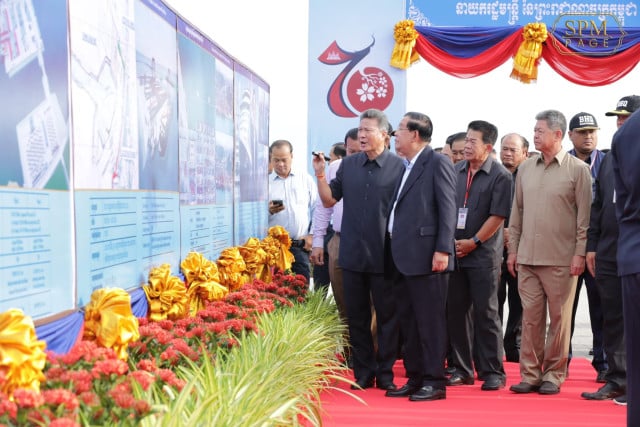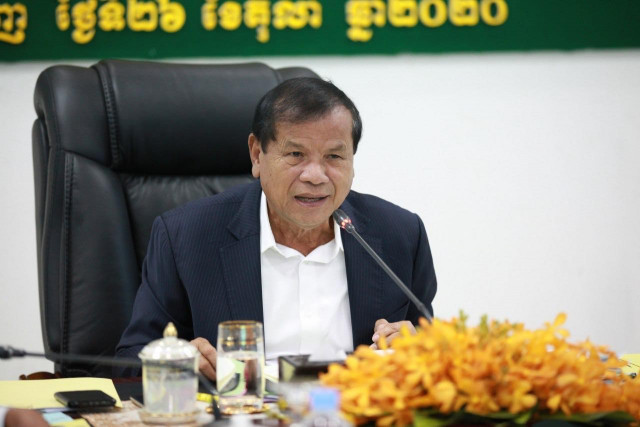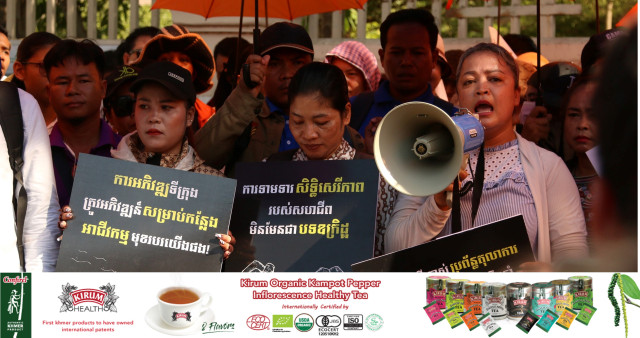Doctors Explain the Surgery on a Parasitic-Twin Baby Conducted in Cambodia
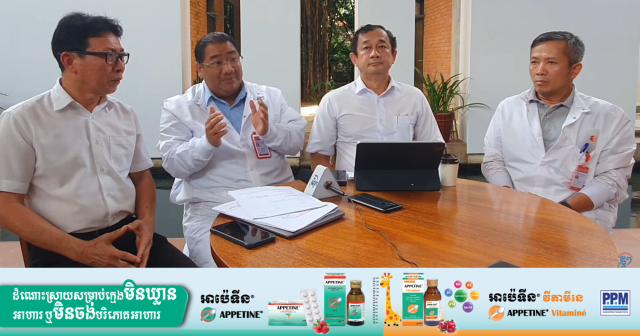
- By Isa Rohany
- and Meng Seavmey
- November 12, 2023 7:00 PM
SIEM REAP — “The case of the parasitic twin was the first at the hospital, and the purpose was not to only save the baby but to help him live healthily after the surgery,” said Dr. Yay Chantana, director of the Jayavarman VII Hospital (Kantha Bopha III) in Siem Reap city.
On Nov. 7, a post on the Dr. Beat Richner Facebook Account reported that a group of three doctors—Dr. Keo Sokha, Dr. Pon Ladin and Dr. Ean Sarin—had successfully operated on a two-day-old boy born with a parasitic twin, that is, having four arms and four legs, and an anal defect.
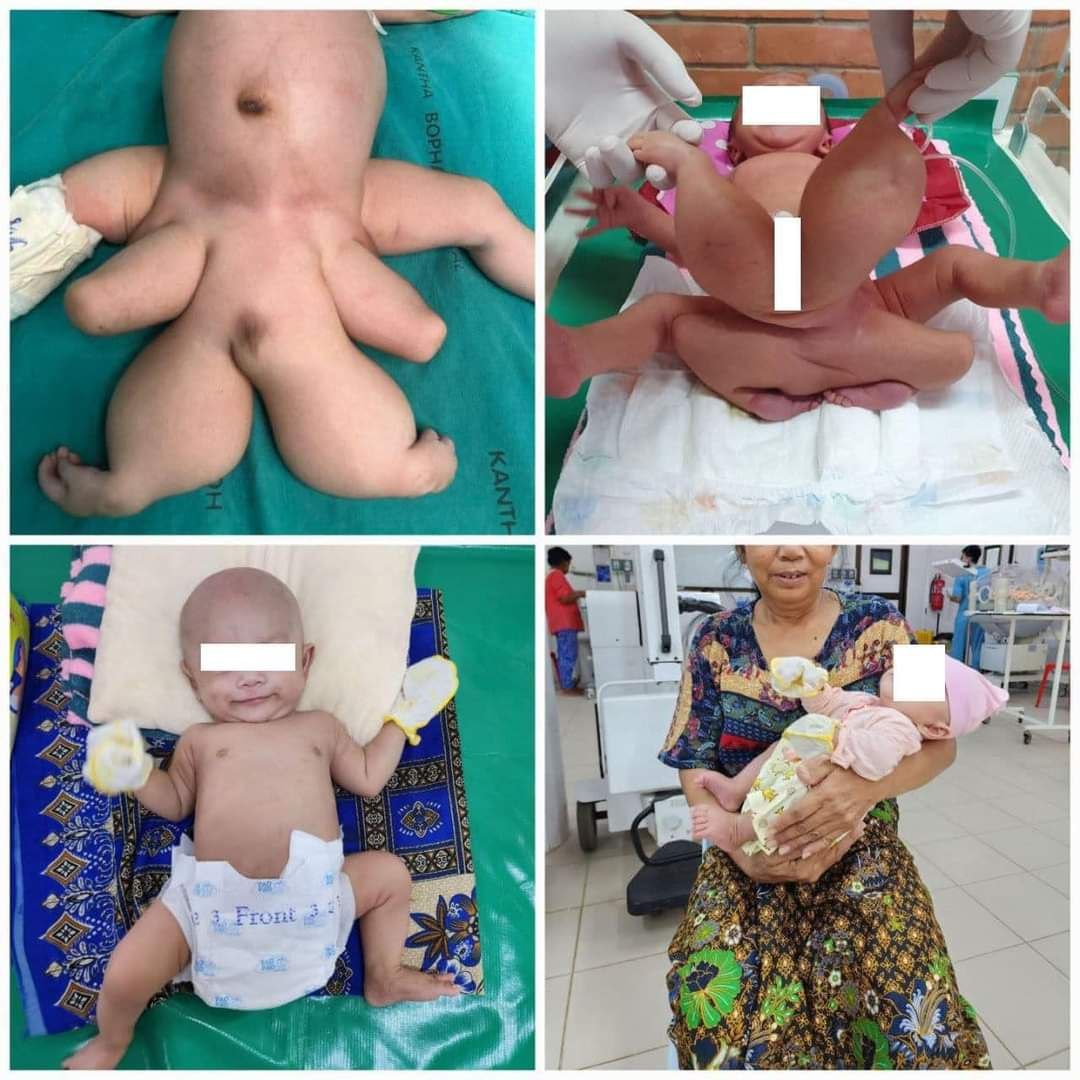
Even though this was the first such case at the hospital, the medical team did not hesitate to take the patient in, knowing they had the surgeons and medical facilities to handle the case, the Facebook post read.
Explaining the treatment process, Dr. Yay Chantana, the hospital director, said that several scans had been done of the blood vessels, bones, and other organs so the three doctors could discuss the priorities for the surgeries.
Dr. Keo Sokha, who is a surgeon, said that the case presented quite a few challenges. “There were many abnormal organs from birth as it was a parasitic twin,” he said. “We did a scan of the baby to see the abnormal organs and find out whether we could remove them because they were unnecessary and would affect the normal organs’ growth.”
“Another challenge was that we had to determine the right time to undertake the surgeries, taking into account the effectiveness of the anesthesia,” Dr. Channea said. “Moreover, we had to discuss which organ should be taken out first.”
The doctors decided to remove the abnormal arms first because they were heavy, the Facebook post read. Such surgery is usually done when a baby is 8-to-12 months old, but in the case for this 2-day-old baby, it was urgent and had to be done as soon as possible.
The second surgery was meant to enable the baby to defecate temporarily through a colostomy as the baby had an anal defect. “At first we thought it would be fine,” Dr. Sokha said. “But after a week, the baby’s defecation got thicker and would have affected the large intestine. So, I pierced the colon for temporary defecation.”
Next, the doctors had to remove the two legs that were abnormal to put the normal ones in a proper position. However, the legs could not yet be placed properly due to the pubis bone in the lower abdomen.
After a discussion with Dr. Sarin, who is an orthopedic surgeon, and Dr. Pon Ladin, a heart specialist, the doctors removed the bone so that the normal legs could be placed normally.
According to the doctors, it took their team 30-to-40 minutes to remove the abnormal arms and legs, and another 30 minutes for the colostomy.
The next step will be to fix the baby’s anus, which will be undertaken in three months and will require the baby staying at the hospital for seven to 10 days afterward. The surgeons will also complete the medical procedure on the bowels in two months.
Lastly, the doctor will place the baby’s reproductive organ in its a normal place as it is currently on the left of the body. “I will place it in the center as much as possible because it is important for the urinary system and the baby’s psychology,” Dr. Sokha said.
The baby, who is from Sampov Lun District in Battambang province, was first brought to the hospital in July 2023. The boy was hospitalized for three months and taken home by his parents on Nov. 7. He will be brought back to the hospital in three months for the next surgery.
Dr. Yay Chantana said that the doctors used to work as a team under the late Dr. Beat Richner—the founder of the Kantha Bopha Children's hospitals who passed away in 2018—and do so whenever needed. In the case of this baby, he said, “It was not only to save the baby but also to be able to make the baby healthy and live normally.”







